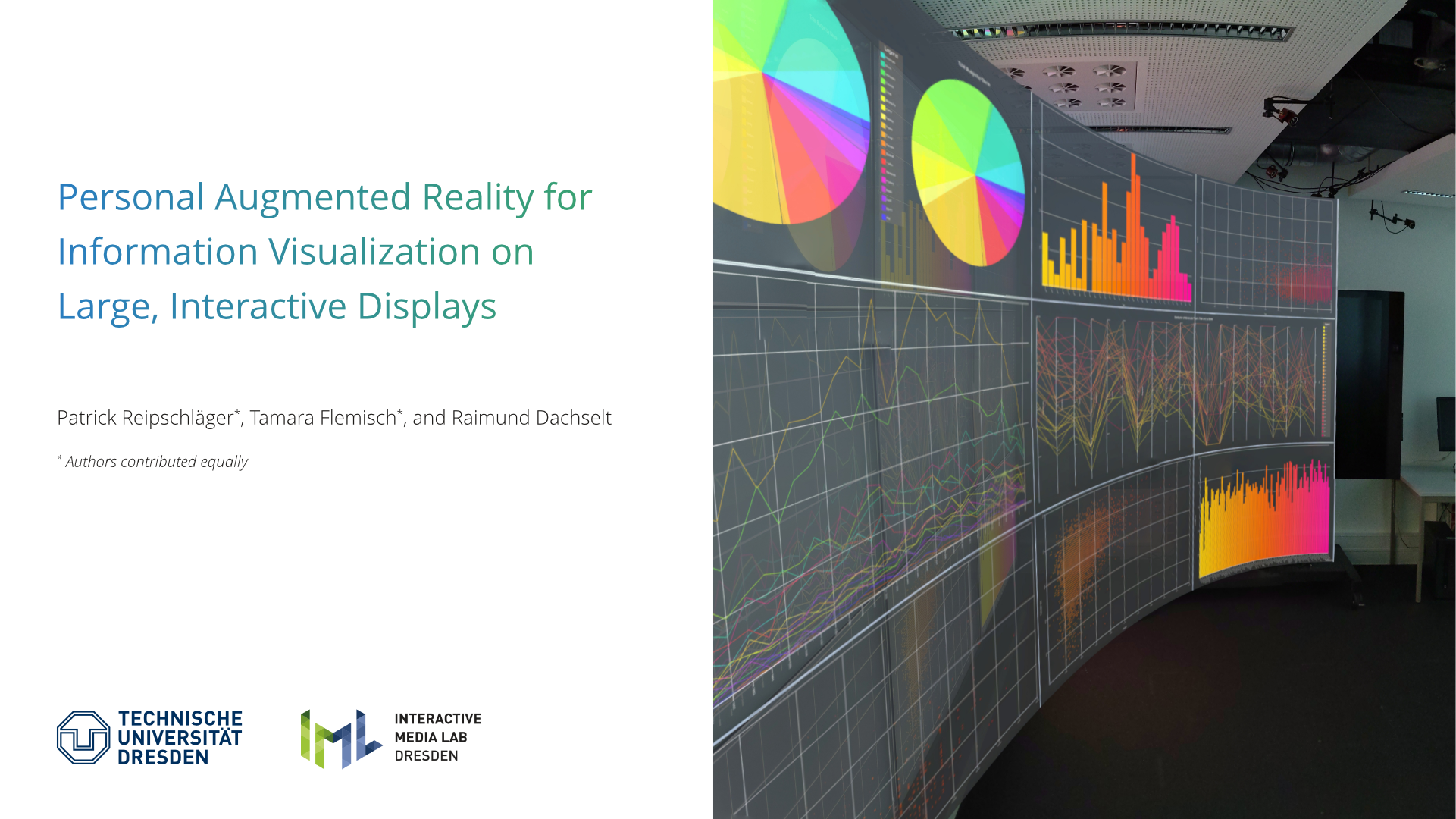Personal Augmented Reality for Information Visualization on Large Interactive Displays
Patrick Reipschläger ,Tamara Flemisch, Raimund Dachselt
External link (DOI)
View presentation:2020-10-29T14:15:00ZGMT-0600Change your timezone on the schedule page
2020-10-29T14:15:00Z

Fast forward
Direct link to video on YouTube: https://youtu.be/xVZ0h5fSBqg
Keywords
Augmented Reality, Information Visualization, InfoVis, Large Displays, Immersive Analytics, Physical Navigation, Multiple Coordinated Views
Abstract
In this work we propose the combination of large interactive displays with personal head-mounted Augmented Reality (AR) for information visualization to facilitate data exploration and analysis. Even though large displays provide more display space, they are challenging with regard to perception, effective multi-user support, and managing data density and complexity. To address these issues and illustrate our proposed setup, we contribute an extensive design space comprising first, the spatial alignment of display, visualizations, and objects in AR space. Next, we discuss which parts of a visualization can be augmented. Finally, we analyze how AR can be used to display personal views in order to show additional information and to minimize the mutual disturbance of data analysts. Based on this conceptual foundation, we present a number of exemplary techniques for extending visualizations with AR and discuss their relation to our design space. We further describe how these techniques address typical visualization problems that we have identified during our literature research. To examine our concepts, we introduce a generic AR visualization framework as well as a prototype implementing several example techniques. In order to demonstrate their potential, we further present a use case walkthrough in which we analyze a movie data set. From these experiences, we conclude that the contributed techniques can be useful in exploring and understanding multivariate data. We are convinced that the extension of large displays with AR for information visualization has a great potential for data analysis and sense-making.